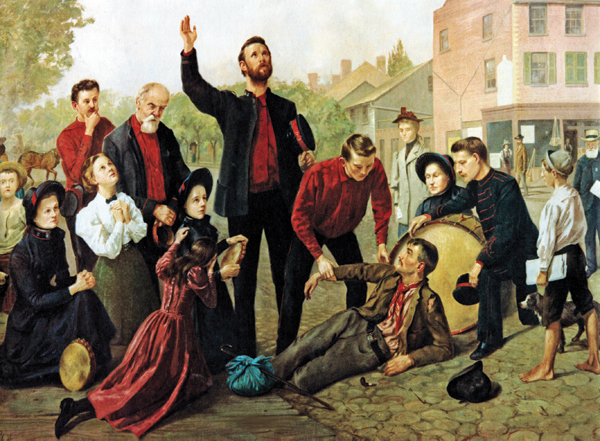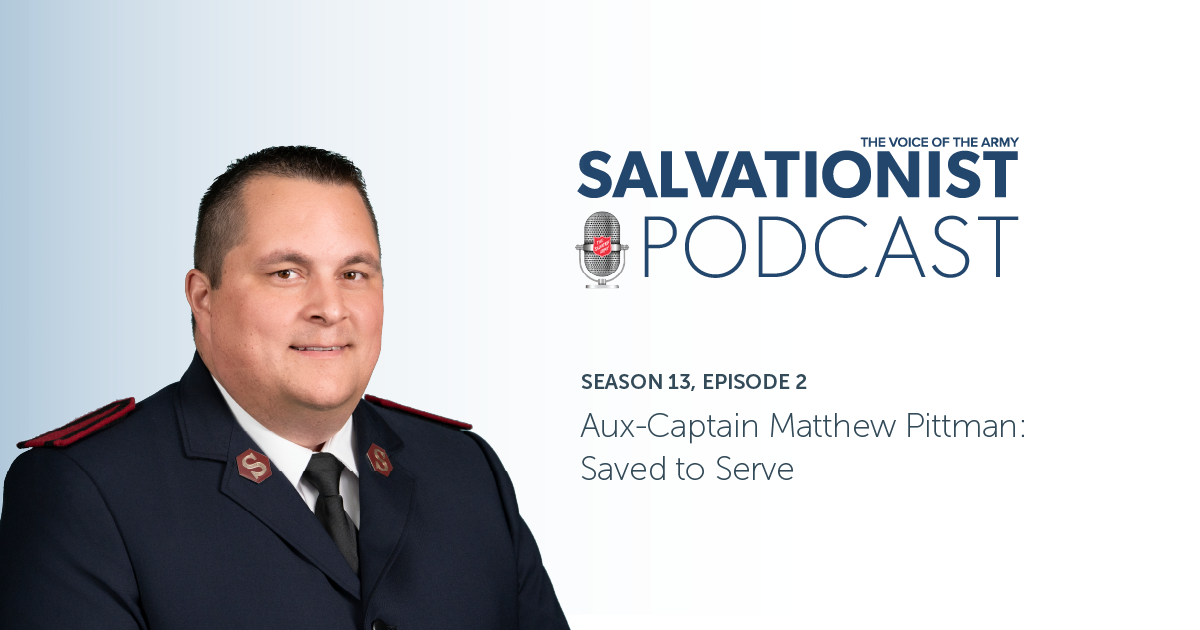
I will be true to the principles and practices of The Salvation Army, loyal to its leaders, and I will show the spirit of Salvationism whether in times of popularity or persecution.
When they sign their Soldier's Covenant, Salvation Army soldiers make a vow with God that they “will show the spirit of Salvationism.” What does this mean? What is this spirit of Salvationism?
Is it a reference to the military fervour of the early Salvation Army with its street-preaching, soul-saving, evangelistic zeal? Is it an emphasis on mission or worship? Perhaps it is a spirit of reaching out to the poor and the forgotten, showing them the love of Jesus. Perhaps it refers to something completely different. While we can make our own hypothesis based on the wealth of old Salvation Army literature, it is not specifically articulated in the Soldier's Covenant.
To explore this question, I e-mailed a number of people and asked them to define, in two sentences or less, what the spirit of The Salvation Army means to them. The people surveyed come from a variety of experiences, ages and backgrounds; some are Christians and some are not; some grew up in a Salvation Army church and some did not. After reviewing the responses, I discovered that they fit into one or more of four general categories:
1. Self-Sacrifice
A number of respondents mentioned the concept of self-sacrifice. Salvationists are willing to forgo their own interests, comforts and advantages for the purposes of Jesus Christ. As William Booth said, “Without excuse and self-consideration of health or limb, true soldiers fight, live to fight, love to fight, love the thickest of the fight, and die in the midst of it.” Or, as one of my friends responded, “The spirit of The Salvation Army is running into places and situations that others are fleeing from.”
2. Loving and Caring for One Another
Many identified the love we show for one another, specifically fellow Salvationists, family and friends. As one non-Salvationist responded, “The spirit of The Salvation Army is a loving and caring family looking out for one another.” This speaks well to our reputation and echoes the commands of Jesus when he said, “A new command I give you: Love one another. As I have loved you, so you must love one another. By this all men will know that you are my disciples” (John 13:34-35).
3. Message of Salvation
As one respondent wrote, “The spirit of the Army is the driving force behind ordinary people bringing Heaven to earth in the name of Jesus.” Serving others is important, but there is an important spiritual and eternal dynamic at work that is at the very core of who The Salvation Army is. Salvation is essential to our identity—it's even part of our name—so we must continue to proclaim the saving message of Jesus Christ.
4. Caring for the Needy and the Disadvantaged
When William Booth was asked to send a telegram to all officers around the world, they told him he could only use one word. This word encompassed his most vital message, and is a reminder that is no less important today. The word? Others.
The theme of caring for the needy and disadvantaged was by far the most popular among those who responded to my e-mail. I believe this is for two reasons: 1) Many of my Salvation Army friends also happen to be passionate about this specific area of God's calling for our Movement; and 2) My non-Salvationist friends are echoing the popular public perception of the Army. This is the image of The Salvation Army displayed in Red Shield campaigns and on TV commercials. The Salvation Army cares for those in need. As another friend of mine wrote: “From the outside, I see The Salvation Army as a Christian organization that works very hard on the ground, in the trenches. It uses its counter-cultural position to raise awareness and make a difference for the poorest of Western society.”
One thing that was abundantly clear as I read people's opinions is that our Movement still has a positive reputation in society, particularly in the eyes of those on the “outside.” However, when you read the eighth promise statement in the Soldier's Covenant, it's clear that the early Salvation Army leaders understood that this would not always be the case: “I will show the spirit of Salvationism whether in times of popularity or persecution.” In other parts of the world, and during various points of our history, such persecutions have already been felt. We have not always been popular members of society. However, it is the promise of every soldier in The Salvation Army, no matter how we are perceived, to live out this spirit—a spirit of self-sacrifice, putting others ahead of ourselves, loving one other, sharing the good news of Jesus Christ and caring for the needy and disadvantaged.
Rob Perry is the ministry co-ordinator at Toronto's Corps 614.









Unity and affirmation of our beliefs during preaching and individual christian slodier's lives also plays a role. In short the spirit of salvationism is an identity of those salvation army members because of what they believe,practice and preach.